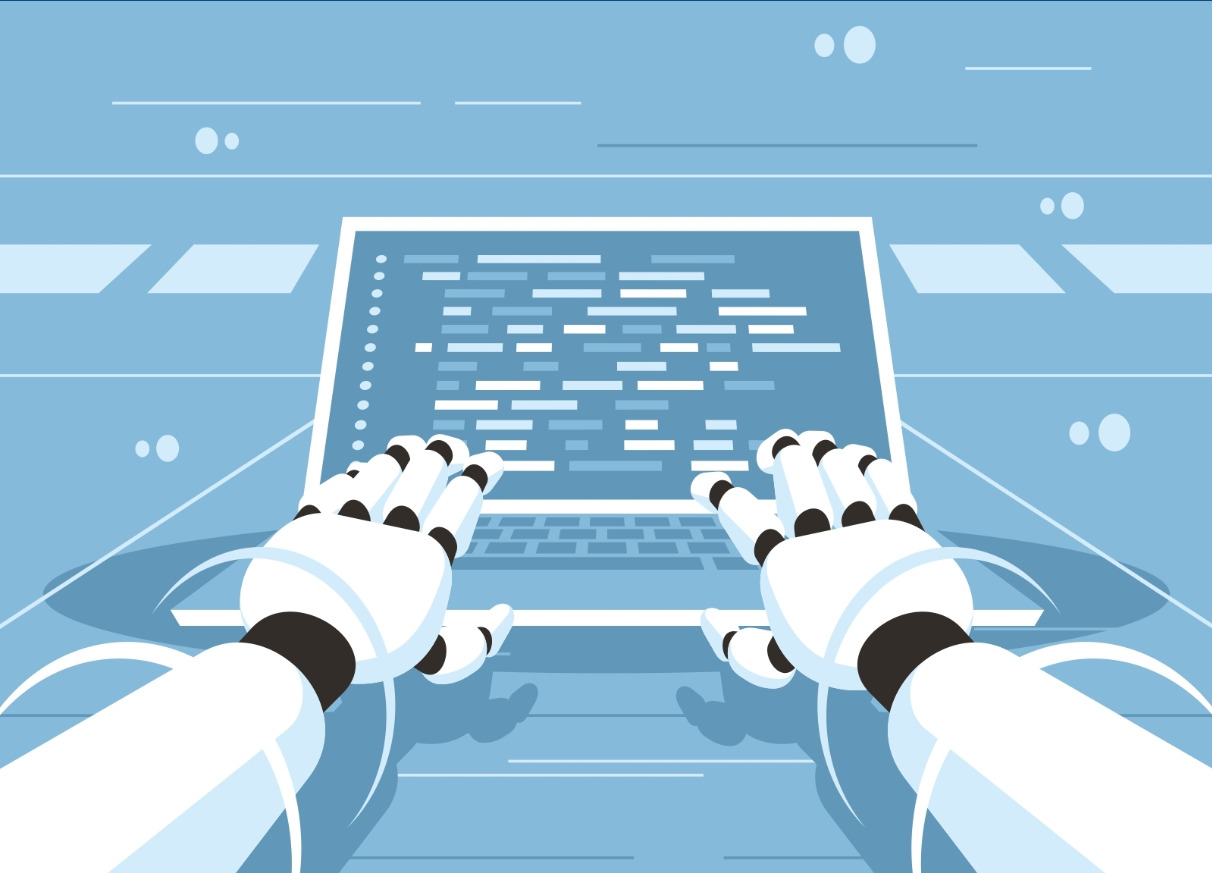Do you want to learn how to become an artificial intelligence (AI) specialist and drive its development further? If this is the case, then look no more. Here we’ll examine what it requires to be a successful AI specialist – from grasping the basics of data science to exploring available jobs in that area.
We will also evaluate how one can remain up-to-date with current trends and tech breakthroughs concerning AIs to stay caught up to their rivals.
With all the details below, you can make your own informed decision about whether pursuing such a profession fits best for yourself or not.

1. Understand AI Fundamentals
If you have a passion for Artificial Intelligence and want to become an AI expert, you must get down to the basics of this subject.
AI is quite varied – taking in aspects from computer science, cognitive science, and neuroscience. It means creating computing systems as humans do.
The most sought-after aspect of AI is machine learning. This uses data algorithms driven by experience to uncover patterns within any given data set.
Have we made sufficient advances with Machine Learning over recent years compared to other potential applications? There may be even better ways than ML approaches in some areas!
It’s essential to get a grip on the core concepts of Artificial Intelligence, which include neural networks, deep learning, natural language processing (NLP), robotics, and automation.
Neural networks are at the heart of many machine learning models. They use mathematical formulas derived from biological neurons to find connections between differently shaped inputs and outputs.
Deep learning takes this concept further by layering up these neurons inside those networks for tasks like object recognition or image classification with much more complexity.
NLP is another field that employs text comprehension approaches such as sentiment analysis and summarization algorithms to understand the language.

2. Develop Expertise in Data Science and Machine Learning
Mastering data science and machine learning is essential to become an AI specialist. That’s because they are the foundation upon which all other aspects of Artificial Intelligence rest.
They also know what datasets can offer and can interpret the results from complex models. It’s no wonder why these two skill sets have been so highly sought after in recent years!
With a good handle on them both, they’ll be well-equipped for success in their career as an AI expert.
Data Science involves collecting large amounts of information from various sources and then running analyses such as clustering methods or regression analysis over this data to reveal valuable trends or patterns.
It also utilizes mathematical models with statistical techniques to make sense of this massive amount of new information that is now available, thanks to advancements made by modern technology today.
These findings provide enlightening insights into many fields like marketing, healthcare and finance, helping companies better understand their customer’s needs and, most importantly, gain insight about themselves too!
To become an artificial intelligence specialist, it’s essential to have an unshakeable grasp of mathematics and statistics and code in Python or R.
Understanding database systems like Oracle or SQL Server can help them make the most out of large datasets by managing and displaying them effectively.
However, machine learning also looks into computers having their form of intelligence without us needing to program them all the time manually.
To be an artificial intelligence specialist, you need to know programming languages, understand linear algebra concepts, and learn probability theory basics, including Bayes’ theorem and conditional probability distributions.
Moreover, having a good understanding of topics like supervised/unsupervised techniques (e.g., k-means clustering) will further help you journey towards mastery of this field.
Regular practice is crucial to developing skills like data analysis and machine learning. You also need to use online resources like Kaggle and UCI Machine Learning Repository to complete related projects.

3. Explore AI Career Paths & Opportunities
In present times, Artificial Intelligence (AI) has become one of the hottest fields in the tech industry.
With its quick advancement rate, AI is a necessary part of loads of businesses as they try to utilize this technology so that it can facilitate their processes and give excellent customer experience.
Therefore there’s a huge demand for experts possessing deep understanding and ability to use these technologies. For those contemplating entering the world of AI, different career paths are available.
It’s essential to discern their skillset – is it more technical or theoretical? This will help them work out which road they should take.
AI professionals can either focus on inventing algorithms for machines or understanding how AI works in different applications.
The next step is to decide what type of experience they will gain to make their CV look even better and become more attractive to prospective employers when applying for roles.
You also consider internships or research positions in AI development to work alongside top experts and build their portfolios. Besides, volunteering in research labs can help you gain a real-world understanding of unique resources.
Attending conferences can build connections with experts in their field, leading to future opportunities like consulting jobs or research fellowships.
Becoming an AI specialist requires lots of commitment: learning new techniques takes effort, but if done correctly, it can lead to wonderful careers.

4. Take Part in Relevant Courses & Certifications
Getting to be an AI specialist takes a lot of work. It requires much information, preparation, and specialized abilities to ace the exchange.
One of the best approaches to getting ready for a vocation in Artificial Intelligence is taking up proper courses and endorsements.
These courses do not just assist them with creating insight into AI but also give them the required expert capabilities.
These courses are generally offered by top universities or tech companies like Google, Microsoft, IBM, etc., so if they aim to become an AI specialist, it’s worth considering enrolling in one!
They can also discover a few online courses which offer accreditation programs in Artificial Intelligence and Machine Learning, as well as related topics such as Natural Language Processing (NLP), Computer Vision (CV), Robotics, etc.
Taking these classes can boost their skillset, giving them an advantage in job interviews and promotions.
No doubt, knowledge of AI is crucial, but employers search for hands-on experiences in handling real-world projects with the help of Artificial Intelligence technology, like developing machine learning algorithms and automated chatbot designing, etc. So, you can enroll in certification programs or internships to gain industry knowledge and work with mentors to succeed.
Furthermore, online sources can be used to initiate topics related to deep learning models and image recognition algorithms, making them essential parts of modern AI solutions.

5. Build Your AI Project Portfolio
While becoming an Artificial Intelligence specialist is no easy feat, crafting a portfolio of AI projects is essential. This will show prospective employers or clients they possess all the essential abilities and experience for such a position.
A great portfolio showcases AI technologies like natural language processing, machine learning, computer vision, and robotics, with code and data to illustrate how they were used to solve problems.
Having a range of different projects on your CV is the best way to demonstrate the knowledge and experience in various areas of AI research and development.
If you’re starting, it’s essential not to be too ambitious. You need to build up gradually over time as you gain more skills.
Start with simple tasks such as sentiment analysis or text classification using datasets already available from libraries like TensorFlow or Scikit-learn.
This will help give you an insight into what working with AI involves while also helping you develop valuable abilities that can be applied across all areas of machine learning – something that could make employers notice.
Simple tasks can showcase the grasp of Machine Learning algorithms and data preprocessing techniques, both crucial elements in any AI-related project.
As your skills improve, consider tackling challenging tasks like image recognition with CNNs or NLP projects with embedding layers for text classification.
Remember to log every stage when completing a task. It can help you keep track of decisions made, and show employers how you handle problem-solving in AI applications.

6. Network With Professionals In The Field
Networking is crucial for entering the AI field. So, you should connect with professionals to stay updated and make job connections.
The best way to make these contacts is by attending events such as conferences or seminars around AI or joining online forums where people discuss topics related to this technology.
This gives you an opportunity for interactions but also allows for questions so that experts can provide more knowledge.
Connecting with others within the same sector may be helpful when seeking mentorships or advice on pursuing career goals.

7. Keep Learning and Staying Up-to-Date
Becoming a specialist in Artificial Intelligence (AI) takes both technical skills and expertise. It is vital to keep learning about developments in AI.
Reading pertinent books, participating at conferences, and enrolling in courses about machine learning or deep learning are great ways to remain up-to-date with current trends within AI development.
Furthermore, one of the best ways for professionals to get up-to-date on all things AI is by joining related professional associations. This can help them join a network of other experts striving to advance artificial intelligence technology.
Plus, another great way that professionals can gain an understanding of how they could become an AI specialist is by connecting with those individuals who have already made their mark in this field.
That means following inspiring personalities from within the industry – be it through social media or online blogs – so they’ll know exactly what’s required to succeed in creating innovative solutions using AI tech!
Participating in related forums can be helpful for individuals, as it gives them a chance to learn from folks who have already been through the same journey.
It’s also an excellent opportunity to network with potential employers or collaborators within this exciting field of work.
It bears mentioning that budding AI specialists should always aim high and strive towards self-improvement by broadening their knowledge base via research and experiments.
Taking time to familiarize herself with open-source projects connected to artificial intelligence will provide valuable experience.
Participating in open-source projects shows a passion for utilizing AI technology to create exceptional products and can lead to expertise in the subject.

Conclusion
To wrap it up, becoming an artificial intelligence specialist demands a lot of hard work and focus. Understanding the basics of data science, machine learning and AI technology is essential for succeeding in this area.
Putting effort into mastering these skills can pay off massively with a dynamic career that’s highly sought after and rewarding financially.
With enough expertise under your belt, you have the potential to become one of the top professionals in this field. So, try your best!
Has this article provided you with useful knowledge? Do you have any specific questions about this topic? Do not forget to leave a comment below the article so that people with the same passion as you can exchange more.
Thank you for your interest in this article!
